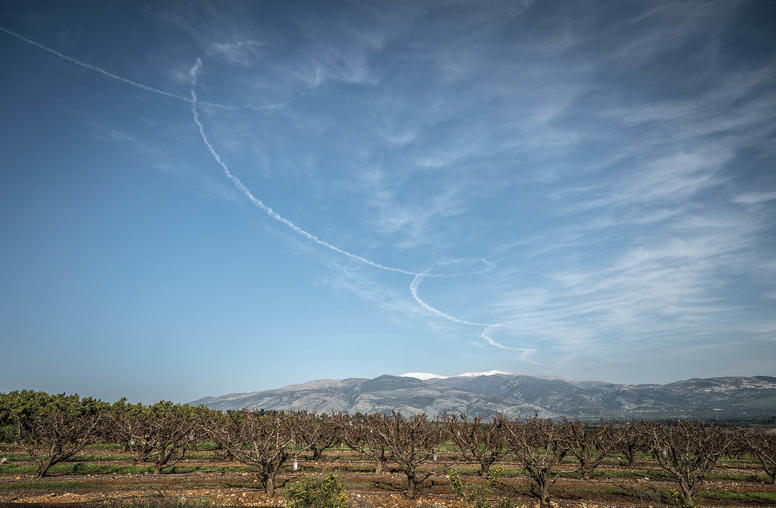Middle East Strategy Task Force: Beyond Refugees
An End to Exodus: Building Resilient States in the Greater Middle East
Read the Event CoverageThe hundreds of thousands of refugees streaming into Europe are just the beginning. War, poverty and poor governance have uprooted 19 million people across the Middle East and North Africa. Former Secretary of State Madeleine Albright and former National Security Advisor Stephen Hadley led a discussion September 18 of how the United States and its partners should respond to the greatest displacement of people since World War II. With former British foreign secretary David Miliband, USIP President Nancy Lindborg and other panelists, they focused on the steps needed to address this crisis at its roots.

The event was co-sponsored by the Atlantic Council and the U.S. Institute of Peace, and was the third public hearing of the Middle East Strategy Task Force (MEST). The task force, co-chaired by Albright and Hadley, is a bipartisan Atlantic Council initiative that includes USIP and other institutions. It aims to develop a long-term framework for U.S. policy in the broader Middle East region to support a stable, prosperous order based on resilient, legitimate, well-governed states. The immediate crisis is not only massive, but long-term: current-day refugees remain displaced on average for 17 years, according to the U.N. refugee agency. The United States and its partners should begin immediately the groundwork for a transformation in the Middle East that can halt the dislocation at its sources.
The panelists at the event were: Madeleine Albright, who served as U.S. secretary of state from 1997 to 2001 and is chair of the Albright Stonebridge Group. Following his tenure as U.S. national security advisor from 2005 to 2009, Stephen Hadley co-founded RiceHadleyGates LLC. He serves on the boards of the Atlantic Council and (as chairman) the U.S. Institute of Peace. David Miliband is president and CEO of the International Rescue Committee, and served from 2007 to 2010 as the United Kingdom’s secretary of state for foreign and commonwealth affairs. USIP President Nancy Lindborg served from 2010 to 2014 as the assistant administrator of USAID’s Bureau of Democracy, Conflict, and Humanitarian Assistance, and as president of Mercy Corps. Antoine Frem is the mayor of Jounieh, Lebanon. Before joining USIP, Manal Omar was regional program manager for the Middle East for Oxfam - Great Britain, where she responded to humanitarian crises in Palestine and Lebanon.
Continue the conversation on Twitter with #BeyondfRefugees.
Speakers
Hon. Madeleine K. Albright, Opening Remarks
Former U.S. Secretary of State
Co-Chair, Middle East Strategy Task Force
Mr. Stephen J. Hadley, Moderator
Former U.S. National Security Advisor
Co-Chair, Middle East Strategy Task Force
H.E. David Miliband
President and CEO, International Rescue Committee
Hon. Nancy Lindborg
President, United States Institute of Peace
Mr. Antoine Frem
Mayor of Jounieh, Lebanon
Ms. Manal Omar, Opening Remarks
Acting Vice President, Middle East & Africa Center, United States Institute of Peace



